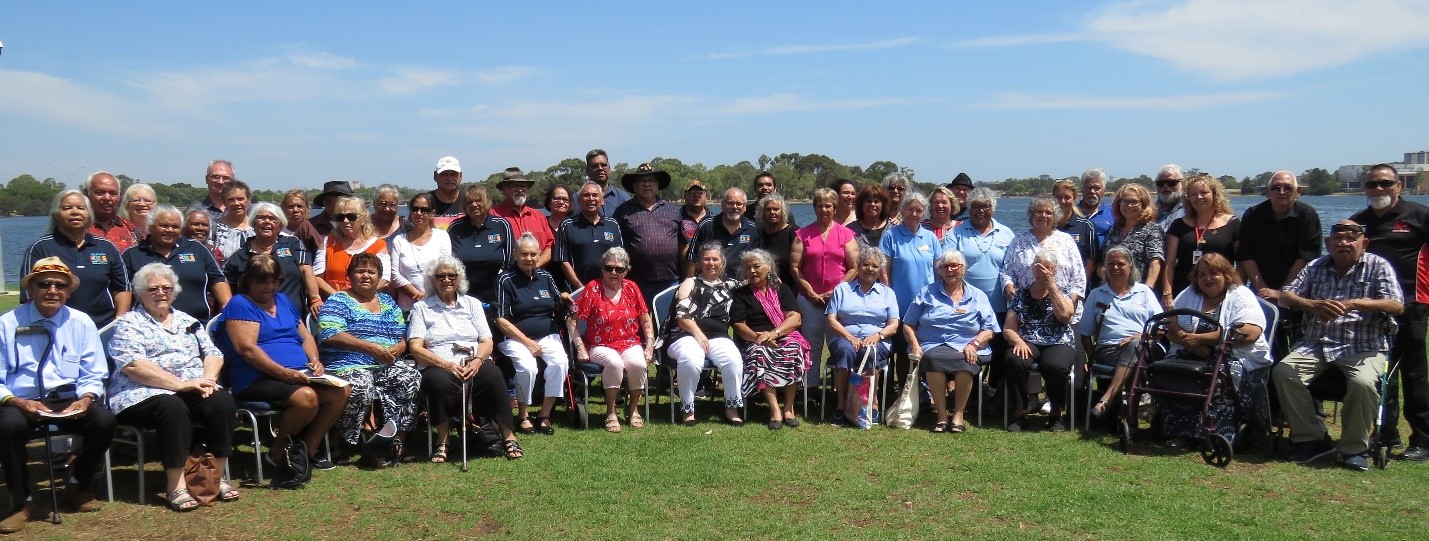Search
This research project was part of the broader Ngulluk Koolunga Ngulluk Koort (Our Children, Our Heart) five-year (2016 to 2020) project.

The third Big Elders meeting/gathering was held on the 26th of February 2019 at Burswood on Swan.
Research
Ngulluk Moort, Ngulluk Boodja, Ngulluk Wirin (Our Family, Our Country, Our Spirit) Out-of-Home Care StudyWe are working with the leadership and staff at foster care agencies and community members to provide information about cultural connection, and cultural activity and resources for Aboriginal children living in non-Aboriginal care arrangements.
Research
Randomised controlled trial of perinatal vitamin D supplementation to prevent early-onset acute respiratory infections among Australian First Nations children: the 'D-Kids' study protocolGlobally, acute respiratory infections (ARIs) are a leading cause of childhood morbidity and mortality. While ARI-related mortality is low in Australia, First Nations infants are hospitalised with ARIs up to nine times more often than their non-First Nations counterparts.
Research
Incidence of Stroke in the Aboriginal and Non-Aboriginal Populations of Australia: A Data Linkage StudyMost estimates of stroke incidence among Aboriginal and Torres Strait Islander (hereinafter Aboriginal) Australians are confined to single regions and include small sample sizes. We aimed to measure and compare stroke incidence in Aboriginal and non-Aboriginal residents across central and western Australia.
Research
Evaluating the role of asymptomatic throat carriage of Streptococcus pyogenes in impetigo transmission in remote Aboriginal communities in Northern Territory, Australia: a retrospective genomic analysisStreptococcus pyogenes, or group A Streptococcus (GAS), infections contribute to a high burden of disease in Aboriginal Australians, causing skin infections and immune sequelae such as rheumatic heart disease. Controlling skin infections in these populations has proven difficult, with transmission dynamics being poorly understood. We aimed to identify the relative contributions of impetigo and asymptomatic throat carriage to GAS transmission.
Research
Cumulative incidence of child protection system contacts among a cohort of Western Australian Aboriginal children born 2000 to 2013Reducing the over-representation of Aboriginal children in the child protection system is a key target for the Australian government. We aimed to provide more recent evidence on the population-level cumulative incidence of contacts for Aboriginal children with child protective services in Western Australia.
Research
Inequity of antenatal influenza and pertussis vaccine coverage in Australia: the Links2HealthierBubs record linkage cohort study, 2012–2017Pregnancy and early infancy are increased risk periods for severe adverse effects of respiratory infections. Aboriginal and/or Torres Strait Islander (respectfully referred to as First Nations) women and children in Australia bear a disproportionately higher burden of respiratory diseases compared to non-Indigenous women and infants. Influenza vaccines and whooping cough (pertussis) vaccines are recommended and free in every Australian pregnancy to combat these infections.
Research
Western Australia remote aeromedical substance use disorders outcomesSubstance use disorders (SUDs) cause significant harm to regional Australians, who are more likely to misuse alcohol and other drugs (AODs) and encounter difficulty in accessing treatment services. The primary aims of this study were to describe the demographics of patients aeromedically retrieved from regional locations and compare hospital outcomes with a metropolitan-based cohort.
Research
“Sometimes Our Mob Don't Really Take It Serious Until It's Serious”: The Experiences of Western Australian Aboriginal Adolescents Living With Type 2 Diabetes, Their Parents, and Their Family MembersIn Australia, Aboriginal children experience disproportionate rates of type 2 diabetes (T2D) compared with non-Aboriginal children. The aim of this qualitative study was to explore the experiences of Aboriginal adolescents with T2D and their family members to better understand the influences of T2D on self-management, with findings used to inform an enhanced service model of care.
